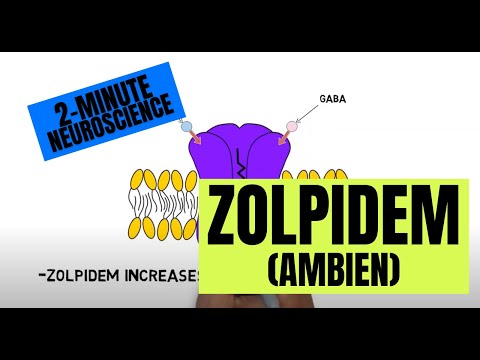- Subjects: Neurosciences
- |
- Contributor:
- Neuroscientifically Challenged
- sleep paralysis
- neurons
- spinal cord
This video is adapted from: https://www.youtube.com/watch?v=QLTGu3Y404M
Sleep paralysis is a relatively common phenomenon in which someone experiences a state of immobility just before falling asleep or upon awakening. In this video, I discuss what might be happening in the brain to cause sleep paralysis. [1][2][3]
TRANSCRIPT:
Sleep paralysis is a relatively common phenomenon in which someone experiences a state of immobility just before falling asleep or upon awakening. People who experience sleep paralysis are awake and generally aware of their surroundings during the episode; they typically can open their eyes but are otherwise unable to move. On average, an episode only lasts several minutes. During an episode of sleep paralysis a person may also experience hallucinations and abnormal sensations, including perceptions that there is someone else in the room, out-of-body experiences, and feelings of suffocation or choking. Some have hypothesized that these types of experiences may be the basis for various accounts of supernatural and other unusual encounters, such as contact with ghosts, demons, and aliens.
Although sleep paralysis is not fully understood, it is generally believed to occur due to an overlap between REM sleep and wakefulness. During REM sleep, neurons in the pons act to inhibit motor neurons in the spinal cord, causing a pervasive loss of muscle movement. And yet, there is a great deal of brain activity occurring in REM sleep, and it is the stage of sleep when we typically experience our most vivid dreams. Sleep paralysis is thought to either involve a failure to activate neurons that inhibit REM sleep or a hyperactivation of neurons that promote REM sleep during a time when a person is either waking or falling asleep. Thus, they experience aspects of REM sleep that spill over into wakeful consciousness. Despite being awake they experience the paralysis that occurs during REM sleep and sometimes hallucinations that resemble experiences more likely to occur in dreams. The feelings of suffocation or choking that some report might be due to difficulty breathing deeply caused by interference with normal respiratory muscle function that occurs in REM sleep.
- Cheyne JA, Rueffer SD, Newby-Clark IR. Hypnagogic and hypnopompic hallucinations during sleep paralysis: neurological and cultural construction of the night-mare. Conscious Cogn. 1999 Sep;8(3):319-37. doi: 10.1006/ccog.1999.0404. PMID: 10487786.
- Hishikawa Y, Shimizu T. Physiology of REM sleep, cataplexy, and sleep paralysis. Adv Neurol. 1995;67:245-71. PMID: 8848973.
- Sharpless BA. A clinician's guide to recurrent isolated sleep paralysis. Neuropsychiatr Dis Treat. 2016 Jul 19;12:1761-7. doi: 10.2147/NDT.S100307. PMID: 27486325; PMCID: PMC4958367.


























































































































































